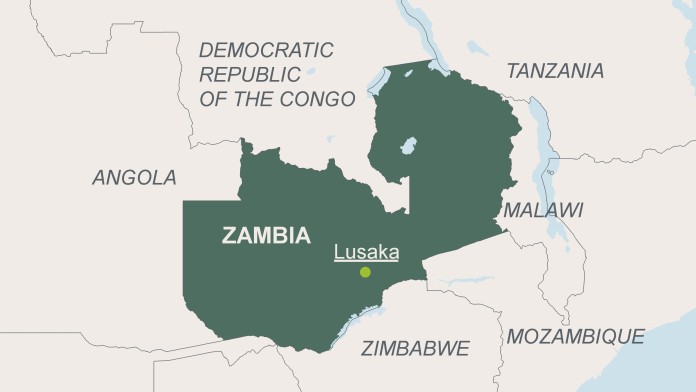
Zambia is rich in mineral resources such as copper, cobalt, tin and lead. The country has great potential for renewable energies. The soil is also fertile. Eight out of ten people live from agriculture, which supplies crops for their own needs. The nation, which has more than 70 ethnicities, is considered politically stable. Since the change of government in 2021, Zambia has set itself an ambitious programme to sustainably improve people’s livelihoods. The government has already achieved its first successes in stabilising the economy and strengthening the local currency.
However, almost two-thirds of the population live below the poverty line and per capita income has even fallen in recent years. One third of the population does not have access to clean drinking water. In addition, given the highest population growth in Southern Africa, the population will double within the next 20 years. The country is therefore facing major challenges. In addition to widespread poverty, these challenges include malnutrition, the consequences of COVID-19, climate change and pronounced social inequality. In order to improve living conditions in the communities, the government is focusing on decentralisation. However, the national budget is heavily indebted, and Zambia had to declare its insolvency in 2020.
On behalf of the German Federal Government, KfW Development Bank is supporting Zambia in the following areas:
Zambia has been relying on decentralisation for several years now. KfW supports this process and helps communities to implement projects such as markets or bus stops on their own. District administrations and their elected representatives learn the know-how to plan, tender and review the progress of investment projects.
The decentralisation projects are being accompanied by the refurbishment and expansion of the oldest administrative school in Sub-Saharan Africa into a state-of-the-art and learning-friendly campus.
KfW is also financing the drinking water supply and sanitation in Zambian communities that host refugees from the D.R. Congo. In the rural region of Luapula, access to clean drinking water has improved. In the capital city of Lusaka, KfW is supporting the construction of a wastewater treatment plant and the rehabilitation of sewage systems to prevent groundwater contamination.
On behalf of Germany and the EU, KfW is also committed to the expansion of renewable energy in Zambia, for example by rehabilitating and expanding the hydropower plant in Chishimba.
Persistent droughts have affected crops in Zambia. Together with its partner WFP, KfW is helping smallholders to modernise their agriculture so that it is more resistant to climate change. Together with other donors, it is financing a programme to ensure nutrition in the first 1,000 days of small children’s lives.
KfW is helping Zambia to improve the living conditions of the population and to manage adaptation to climate change.
KfW Office Lusaka
Director KfW Office: Stephan Lutz
P/Bag RW37X Lusaka
6469 Kariba Road, Kalundu
Lusaka
Zambia
+260 211 29 22-71
Fax: +260 129 24 07